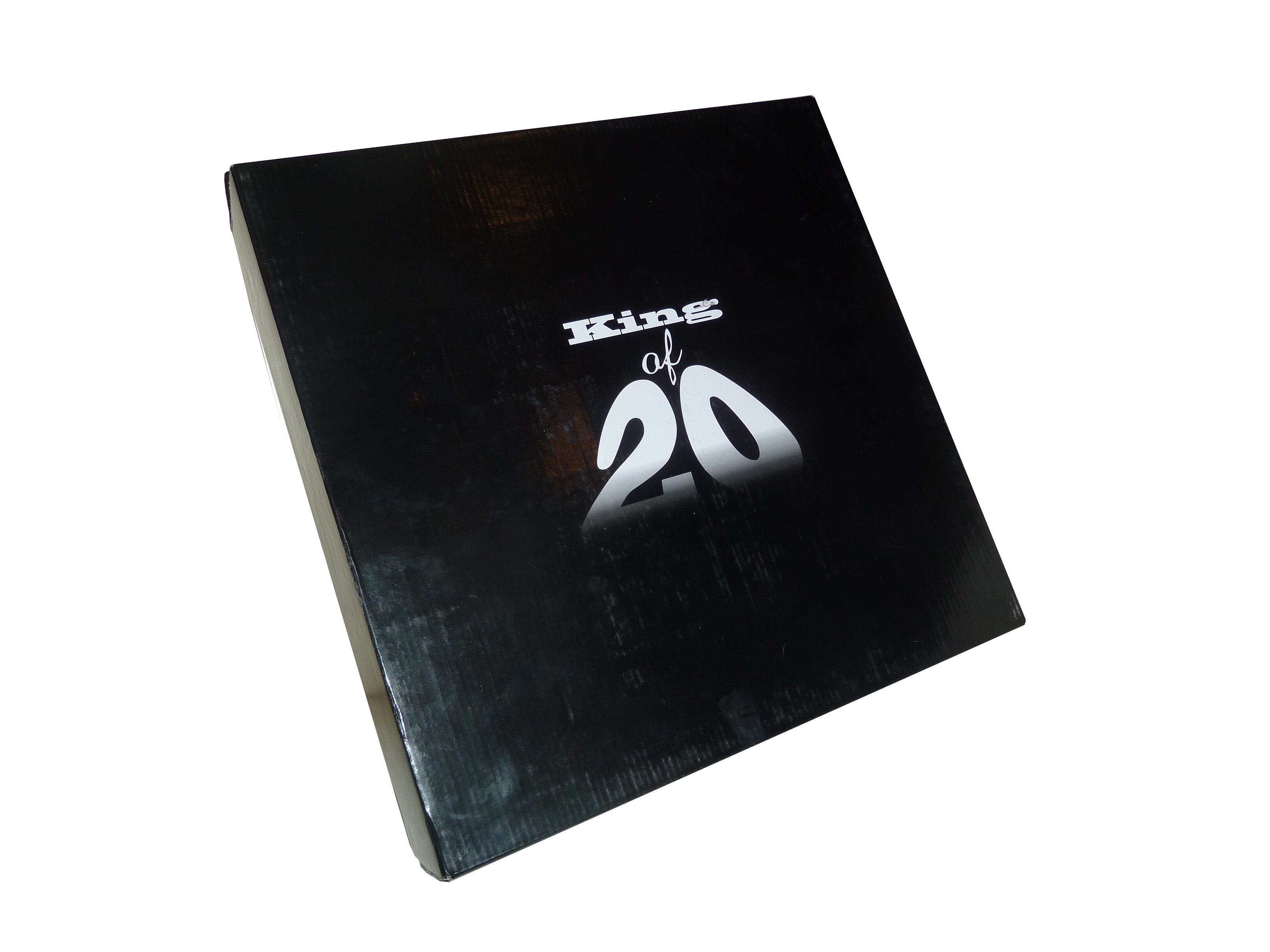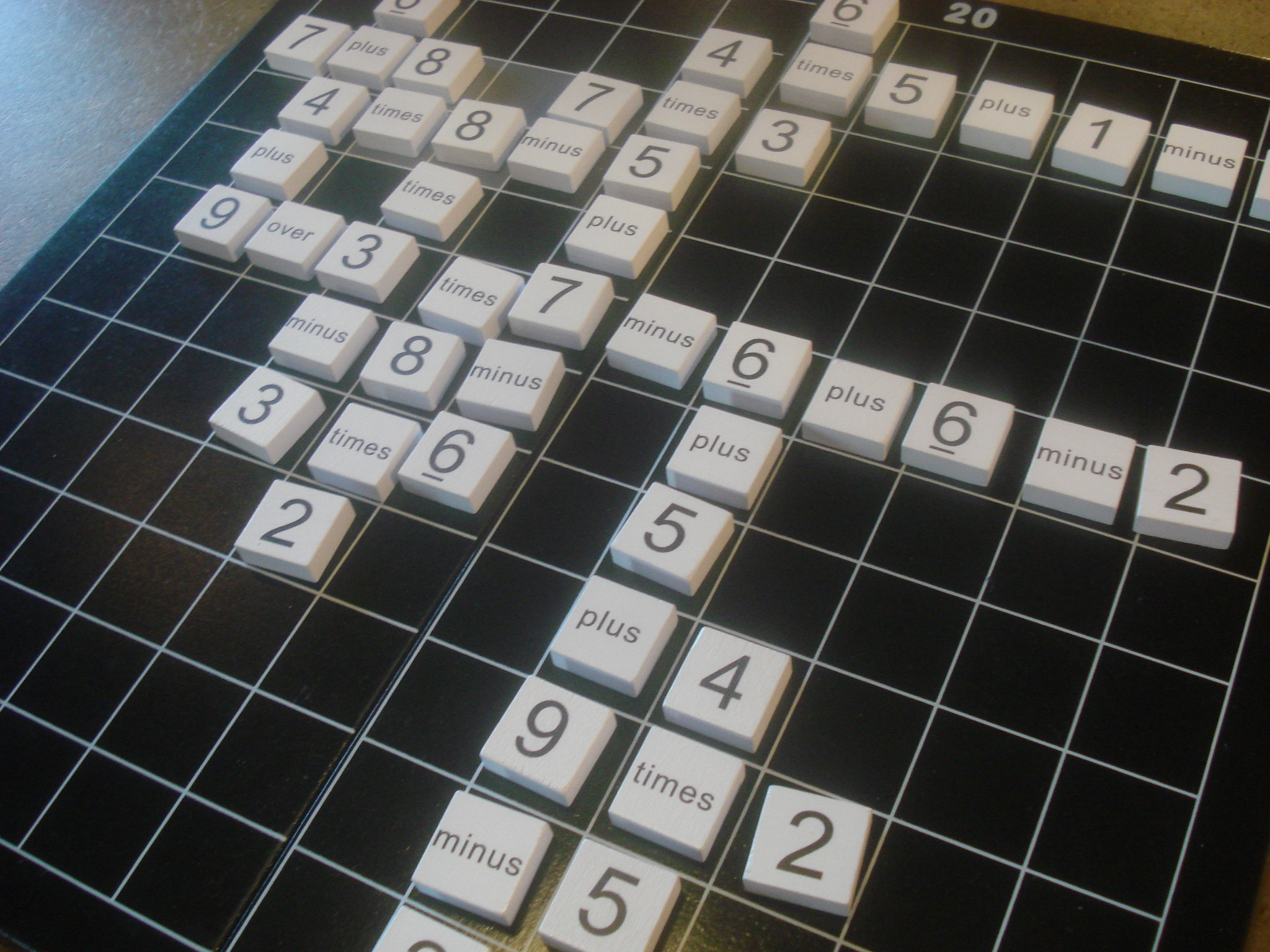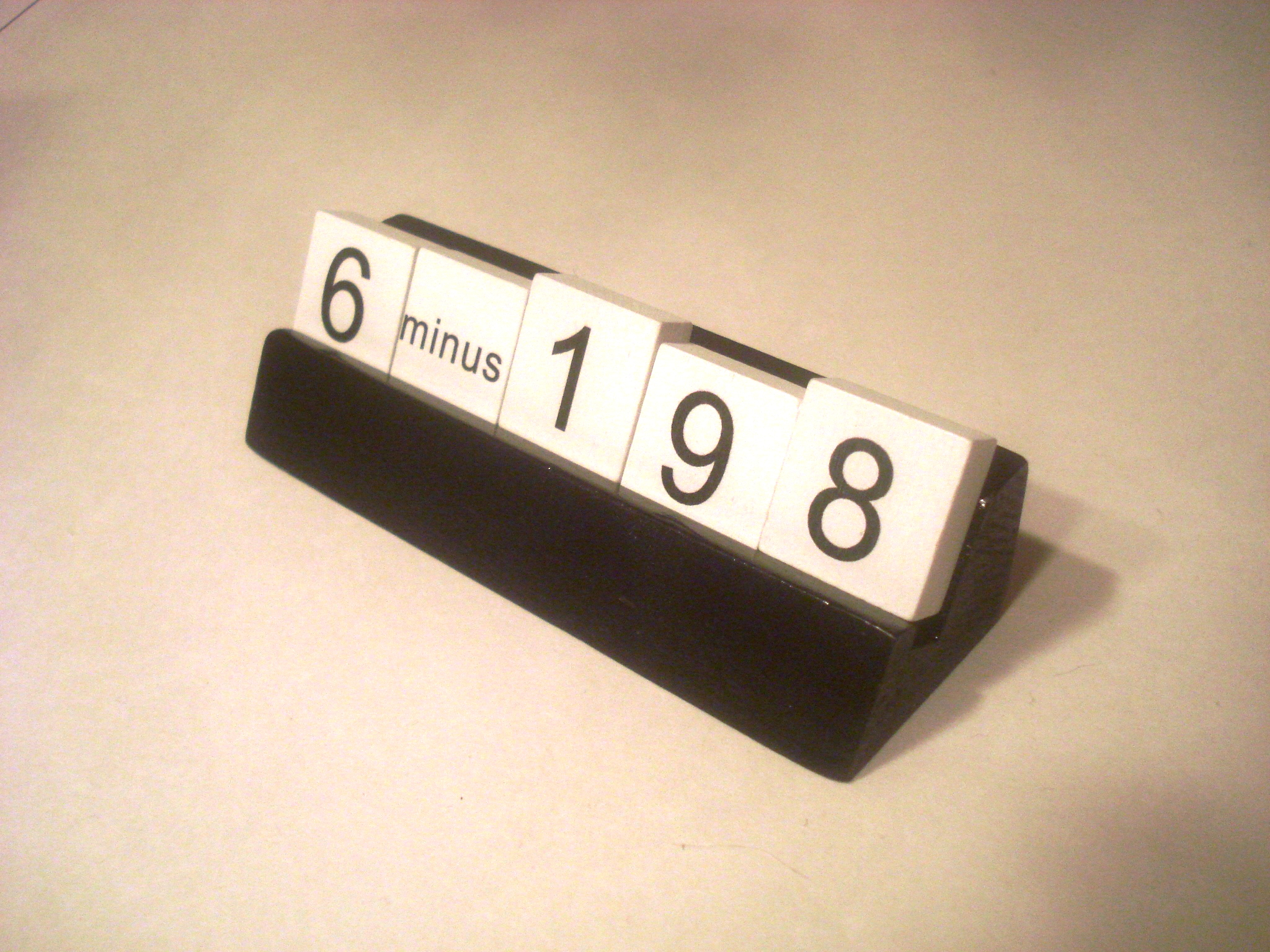| Publisher | King of 20 |
| Design Credits | Ishmael King |
| Game Contents | Hinged wooden board, 74 tiles, four tile racks, bag, score pad, one-minute sand timer, rules |
| Guidelines | Crossword-style math game |
| MSRP | $59.99 |
| Reviewer | Andy Vetromile |
Finding word games is no challenge, especially with all the offerings on the Internet, but math? Not as popular, so maybe it bodes well that unattended gap be filled by King of 20, a game about creating equations.
The object of the game is to have the lowest score by the end of the game.
Two to four players get a rack and a set of five tiles. The latter show either numerals from one to nine or a mathematical operator: plus, minus, times, or divide (here they call it “over”). On his turn, a player plays some of his tokens on the 12 × 12 board to form an equation, playing off one or more of the tiles already present like a Scrabble board.
Their equation each turn is compared to the eponymous 20 and they want as few points as possible, so the trick is to get the statement to come as close to 20 as possible either way. Playing, say, 3 × 5 from one’s rack gets a result of 15; that garners the player five unwanted points, and playing 5 × 5 to get 25 achieves the same result. As equations stretch out over the board, players crisscross previous statements for their plays.
Given the previous play 3 × 5, someone could build 5 × 4 by using the 5 or the × (depending on which tiles they had on their rack), or the 3 could become 3 × 7. Extending an existing equation is also allowed. 5 × 4 can be modified by a simple “× 1” at the end of it (cheesy, maybe, but effective). Operators are no hindrance to play (if they were, the board would quickly become unplayable), so one need not absorb all those errant tiles on the board into the problem. Having a “times” tile you didn’t play in front of your otherwise beautiful equation is perfectly acceptable.
The player then fills his rack back up to five tiles and lets the next player go. If he cannot find something to put down he can trade pieces with the bag, but he takes a 10-point penalty for the turn. Play continues until there are no more tiles to be drawn, at which point everyone gets one final turn and the game is over. The lowest score wins.
Not content to share some of the same mechanics of play, King of 20 also has a Scrabble-like sensibility where its components are concerned. The pieces are all constructed of wood. The board is painted black with a white grid over it, and the crease in the middle is actually a brass hinge allowing it to fold up for storage – which is odd considering the massive box in which the game comes. The tiles are white with black lettering, and easily read, though as a minor nuisance the 6 has a line under it for clarification where the 9 does not. The operators are inexplicably words, not symbols, so it’s plus, minus, times, and “over” not +, -, ×, and ÷ (perhaps this is to forestall arguments about changes in symbology across disciplines or regions, though why language-dependent pieces are preferable in that case is hard to imagine). The racks are just large enough for five of the tiles; they fit snugly, though because of slight variations in manufacture a few of them won’t quite squeeze into the holder.
Rounding out the package is a lovely, crisply designed score pad; a one-minute sand timer (that, strangely, seems to vary between a couple seconds shy to a second extra); and a small cloth sack for drawing the tiles. Its mouth is small, so only slender folks are going to get their whole hand in it; others have to prop up the bag bottom and dig with their fingers. This copy looks like its drawstring sleeve has unraveled just a bit.
It’s an understatement to say there can be some analysis paralysis since players are tempted to check every possibility, but that’s why God gave mankind sand-timers. (At least one has no need to go through every possible word in the dictionary for the ideal play.) It still plays faster than its word-based forebears, and the simple math used makes it easier to put everyone on a more even footing during play. The benefits to kids improving their math skills are obvious, and simply put, the game is quite a bit of fun. There’s something that makes you want to challenge yourself, to come up with the best equation you can with your rack of options, and to do even better than that on your next turn.
The ability to interfere with other players’ chances is somewhat restrained, but it’s not nonexistent. If nothing else, as the board becomes more crowded you can see where the possibilities are – then take them for yourself. Using the words “times” and “over” and such instead of math symbols for the operators seems inelegant and unpleasing, but it all means the same thing during play. While it’s possible to debate the purity of the design when the similarities to Scrabble are so obvious, one cannot argue the results or the cleverness of tying the mechanics to the use of 20 as the single total. King of 20 is a whole (number) lot of fun.


